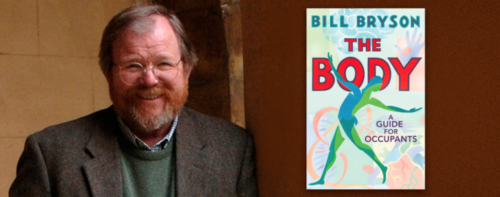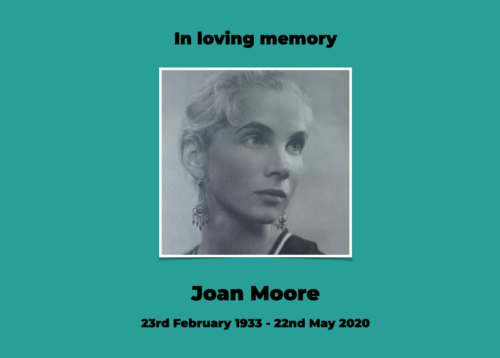
By ROBIN POWELL
If you haven’t yet read Bill Bryson’s The Body: A Guide for Occupants, you should.
It’s an extraordinary book. The overriding message, jumping out of every page, is that the human body truly is a miraculous thing.
Did you know, for example, that you are made of seven billion billion billion atoms? That if you laid all the DNA in your body end to end it would stretch 10 billion miles, beyond the orbit of Pluto? Or that your brain churns through more information in 30 seconds than the Hubble Space Telescope has processed in 30 years?

Picture: Penguin Random House
Reassuring
In many ways, the book is reassuring. The body is a master of self-defence.
It’s estimated, for example, that every day between one and five of your cells turns cancerous, and yet your immune system captures and kills them.
“There are thousands of things that can kill us,” writes Bryson, “and we escape every one of them but one.”
Just at this point in history, though, the human body seems rather fragile. The coronavirus crisis has made us confront our mortality more than any other other in most people’s lifetimes.
The virus has just taken my mum’s sister. She battled bravely in hospital for three weeks before finally succumbing to it last Friday. None us could be there to comfort her in the suffering of her final days. Thank goodness for the love and care of those who work for the NHS.
Auntie Joan was 86, and the vast majority of Britons who have died from from COVID-19 have been over the age of 75. But no one yet, as far as we know, is immune. The virus has claimed lives from every age group and will continue to do so.
2.5 billion heartbeats
The good news is that most of us will live far longer than our ancestors did. According to The Body, the human heart beats about 32 million times a year. The current life expectancy in the UK is 81.4 years. That equates, on average, to a little more than two and half billion heartbeats per lifetime.
For most of our evolutionary history, Bryson explains, the typical human lifespan was nearer the average for mammals — around 800 million heartbeats. The reason why we now live three times longer is entirely down to medical advances.
The progress of medical science in the last one hundred years or so has been astounding.
There is, however, a but.
Death by lifestyle
“In 2011,” writes Bryson, “an interesting milestone in human history was passed. For the first time, more people globally died from non-communicable diseases like heart failure, stroke and diabetes than from all infectious diseases combined.
“We live in an age in which we are killed, more often than not, by lifestyle. We are in effect choosing how we shall die.”
It’s a sobering thought. But what, you might be wondering, has any of this got to do with personal finance? Well, I’d like to suggest three money-related takeaways from Bryson’s book.
1. Protect yourself — and your loved ones
Coronavirus notwithstanding, it’s increasingly unlikely you will die of an infectious disease. But don’t hold hostages to fortune.
Keep washing your hands. Make a will. And review your insurance. Ensure your dependants are provided for in case the worst should happen.
2. Prepare for a long retirement
If medical science continues to develop at the same pace, who knows how long some of us may live? What if you make it to three or four billion heartbeats? Is your pension going to big enough?
The single most important thing you can do to avoid running out of money in retirement is to save more now. You should also investigate ways of funding long-term care.
3. To spend your pension, look after your health
But the most important takeaway is… to ease off on takeaways. Joking aside, most of us need to take more care of our bodies than we do.
About two-thirds of UK adults are overweight; around 27% are classified as obese, up from 14% in 1990. Around one in five UK men don’t make it to the age of 65.
Retirement is a chance to have the time of your life. It’s a well-earned opportunity to spend our wealth, to visit places and enjoy experiences you always said you would. But you need to get there first — and in sufficiently good health to enjoy it while you can.
To increase your chances of doing that, the simple prescription is to eat sensibly and take more exercise. Don’t worry, you don’t need to run marathons; just resolve to move more.
As Bill Bryson says, “what is certain is that in a few tens of years at most you will cease to move at all. So it might not be a bad idea to take advantage of movement, for health and pleasure, while you still can.”

Image: Robina Weermeijer via Unsplash









